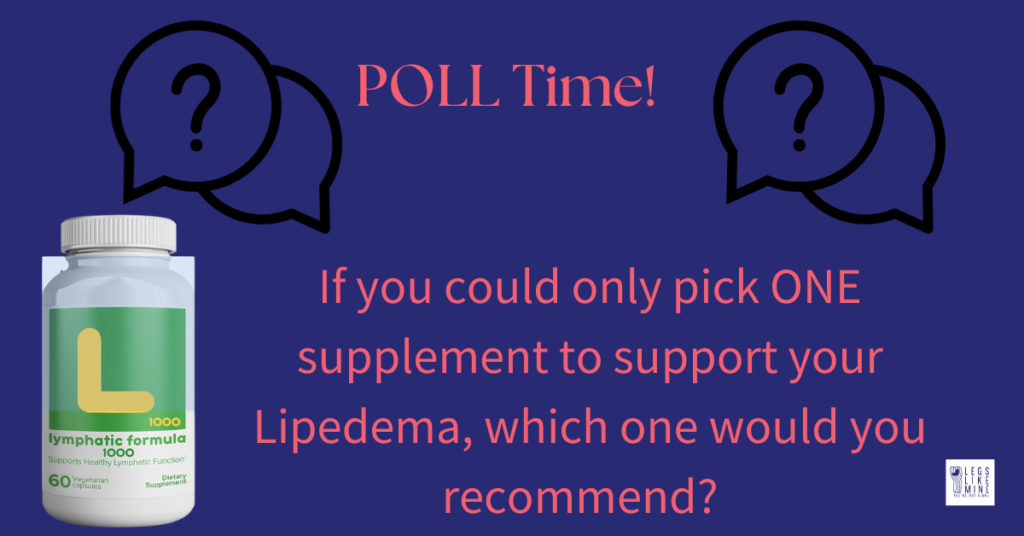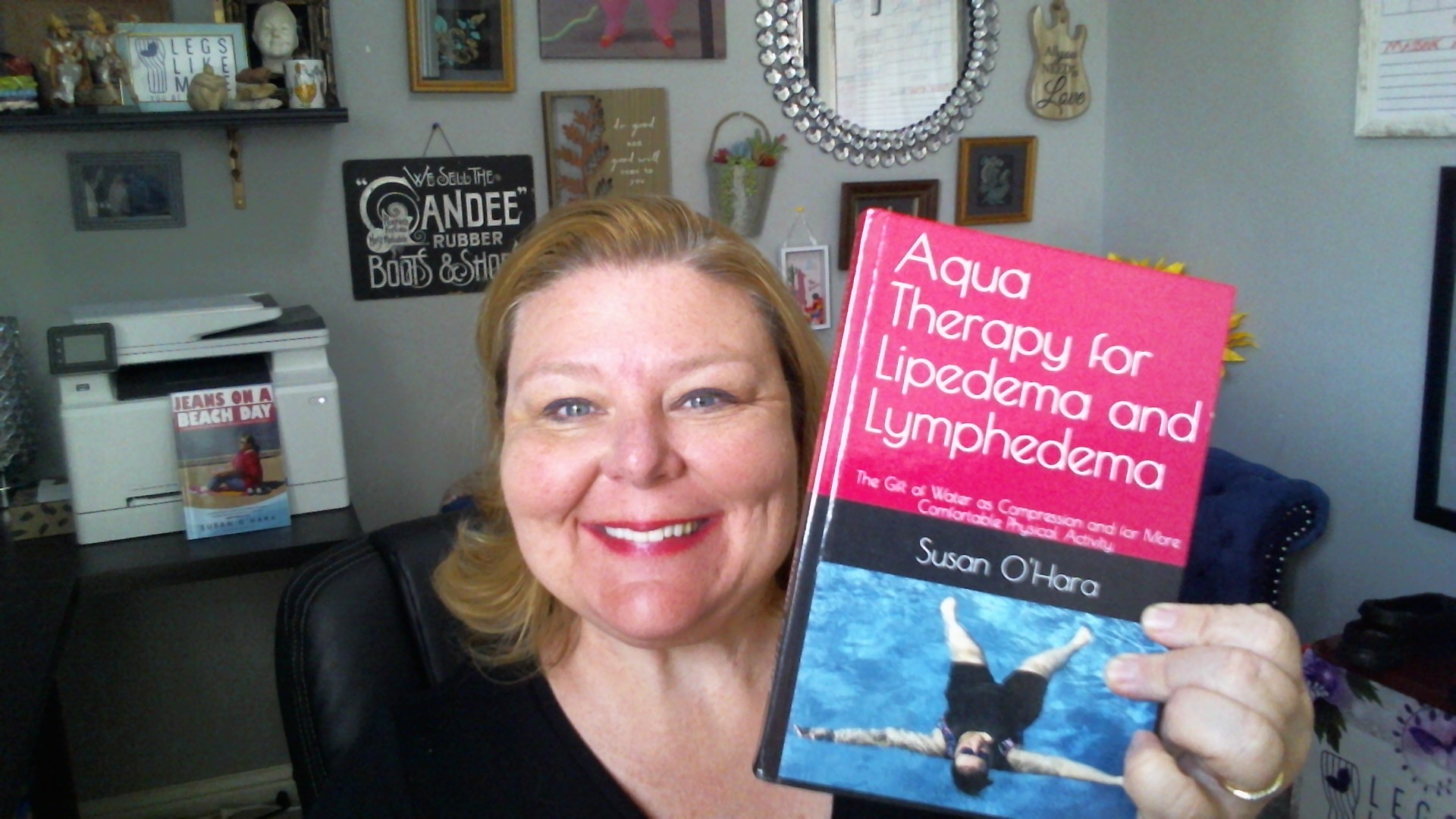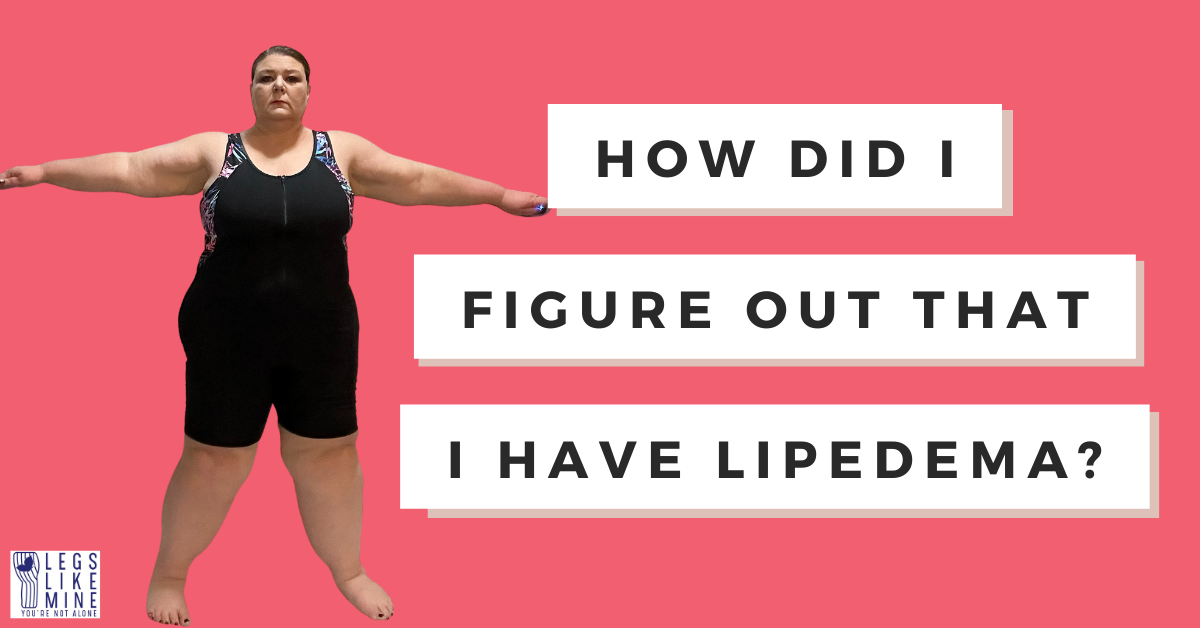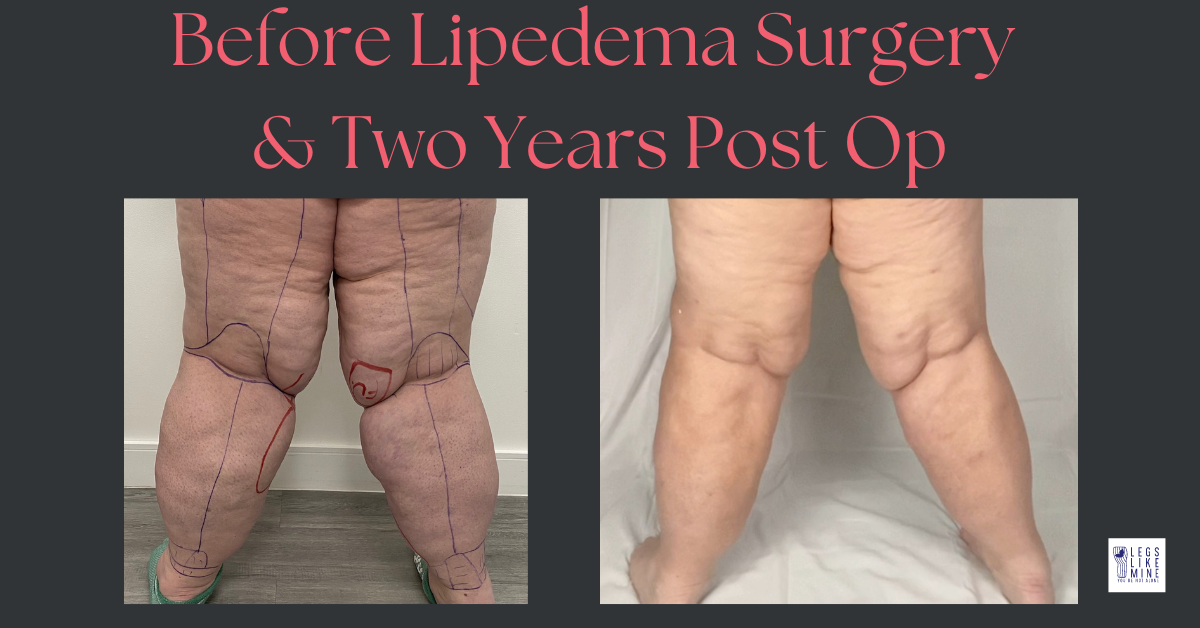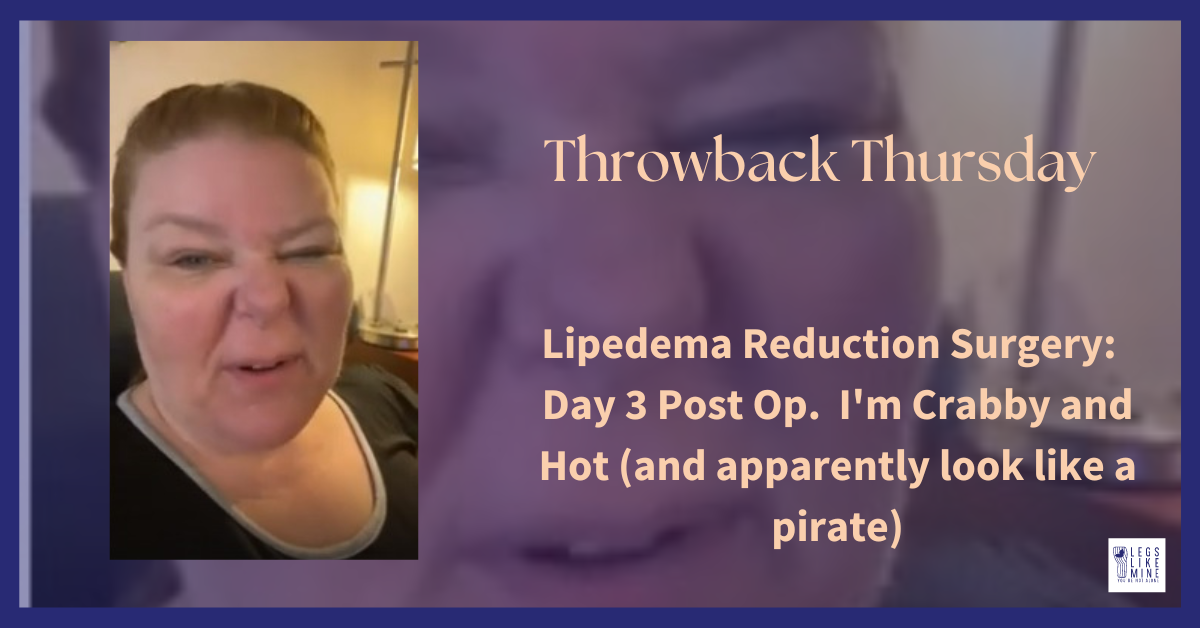Hi friends, this one’s a long article. But ultimately, I want to know, if you had to pick ONLY ONE supplement that you’ve experienced using as a lipedema patient, which one would you recommend, and why? Drop your reply in the comments below.
There is no known medicinal cure for lipedema at this time. Yet, there are many companies who offer a promise of a lipedema cure by using their particular supplement or topical product. If it seems too good to be true, it probably is. Pay attention to claims of curing lipedema. We promise when the cure is found, it will make international news on the first day, and will not be hidden inside a reply on a social media post. Don’t waste your money and time trying unproven supplements.
The discussion of different supplements a patient can take over the counter is an ever-changing one. Each day, patients, often desperate to find the one thing that will cure or slow their lipedema progression, are offered all kinds of vitamins, formulas, different supplements, etc., that may help. Patients often end up coming up with their own cocktails of supplements that may or may not be proven to be effective in the management of lipedema.
According to the Standard of Care for lipedema in the United States, there are no known medications that specifically treat lipedema. There is a litany of ongoing research to find a medicine that will reduce and reverse diseased tissue and slow inflammation. The Standard of Care offers some guidelines in supplementation:
- Use of medications and supplements for lipedema should focus on reducing tissue inflammation, fibrosis, swelling, and pain.
- Medications for metabolic complications that arise from obesity in people with lipedema should follow standard guidelines.
- Medications that increase edema should be avoided in people with lipedema.
- Medications that promote weight gain should be avoided and replaced with medications that are weight neutral or that promote weight loss when possible.
- Thiazolidnediones increase subcutaneous adipose tissue and should be avoided in people with lipedema.
- Long-term use of diuretics should be avoided in people with lipedema because they remove the fluid and leave the proteins, actually thickening lymphatic fluid and decreasing the ability of the fluid to flow freely. Diuretics do not treat the main cause of edema in lipedema, which is inflammation.
- Sympathomimetic amines that constrict arterioles and lower intracapillary pressure can be considered for edema treatment. People with lipedema treated with sympathomimetic amines had reduced weight, body size, edema and pain and improved quality of life.
- Metformin, a drug often associated with the treatment of diabetes, should be considered for people with lipedema and metabolic complications. This may be a drug you should discuss with your doctor to determine if it could help your situation. Metformin inhibits hypoxia-induced fibrosis in adipose tissue and can reverse fibrosis after injury.
- Diosmin can be considered for treatment of lipedema tissue. Diosmin reduces oxidative stress markers in people with chronic venous disease, improves venous elasticity, reduces swelling / edema, reduces microvascular permeability, and improves pain. Disomin can be bought over the counter.
Drugs to Avoid with Lipedema
| Drug Type | Drug Names | Why |
| Diuretics | – Aldactone (spironolactone)
– Bumex (bumetanide) – Demadex (torsemide) – Esidrix (hydrochlorothiazide) – Chlorthalidone – Diurex (over the counter) – Ethacrynic acid (Edecrin) – Furosemide (Lasix) – Hydrochlorothiazide. – Indapamide (Lozide®) – Metolazone (Zaroxolyn) *This list is not conclusive. |
Diuretics remove water from the system. Swelling in lipedema is lymphatic fluid, which is protein rich. Removing water from lymphatic fluid leaves behind the proteins and can actually make lipedema fibrosis worse. |
| Thiazolidnediones | – rosiglitazone
– pioglitazone |
increases fat tissue |
Prescription Drugs to Consider with Lipedema
| Drug Type | Drug Names | Why |
| GLP-1 Agonists | – Dulaglutide (Trulicity) (weekly)
– Exenatide extended release (Bydureon bcise) (weekly) – Exenatide (Byetta) (twice daily) – Semaglutide (Ozempic) (weekly) – Liraglutide (Victoza, Saxenda) (daily) |
Should not be used in lieu of surgical or conservative intervention.
– Aids in patient compliance with anti-inflammatory diets – Anti-inflammatory properties – Helps to reduce non lipedema affected adipose tissue, improving overall health |
| Oral Anti Diabetic Drug | – Metformin 1g. 2x/day | Inhibits fibrosis in fat tissue and can reverse some fibrosis
|
| Sympathomimetic amines
*Watch for drug interactions with this type of drug |
– epinephrine
– norepinephrine – phenylephrine – dopamine – dobutamine – ephedrine – isoprotereno |
– Reduces swelling
– Reduces weight and body size – Reduces pain and swelling
|
Over the Counter Supplements to Consider with Lipedema
Notes about over the counter supplements:
Try one at a time to watch for side effects. After trying the drug for a period of up to two weeks (discontinue sooner if negative side effects), it may be safe to add another OTC supplement into your daily supplementation regimen.
- Purchase quality OTC supplements from reputable vendors. Look at ingredient lists to ensure you don’t inadvertently introduce extra fillers like gluten into your body by choosing the incorrect supplements. These can cause unintended side effects.
- This list is long and may be overwhelming. Start with your good multi vitamin and then look at the ‘why’ section to see what is most important to your body and go for that first. Second, we would recommend starting with a brand of H1 blocker and an H2 blocker that are non-sedating, to get inflammation under control. These are all easily accessible drugs with low instances of drug interaction.
| Supplement Name | Why | Dosage |
| Berberine | To maintain healthy gut bacteria | |
| Butchers Broom | – Improves lymphatic function / pumping | 1 gm / day |
| Calcium D-Glucarate | – Balances estrogen levels in the body | 3000 mg / day |
| Curcumin or turmeric | – Anti inflammatory | 500-2000 mg / day |
| Diosmin (Vasculera is the brand name by prescription). Also sold under the name Vein Formula.
*Potential interaction with anticoagulants |
– Reduces leg heaviness, swelling and tenderness.
– Improves measured lymphatic flow. – Reduces oxidative stress markers in people with chronic venous disease – Improves venous elasticity – Improves lymphatic function and pumping
|
|
| Fish Oil / Omega 3 fats | – Aids in fatigue | |
| Guaifenesin (Mucinex©) | – Reduces lipedema swelling and inflammation | 600 mg 2x/day |
| Histamine (H1) Blockers
– Cetirizine – Fexofendadine |
– Reduces activity of mast cells and can aid in resolving inflammatory flares | See drug labeling.
*note, try one H1 blocker at a time for tolerance. If not tolerated, move to the next one. |
| Histamine (H2) Blockers
Famotidine Ranidtidine Cimetidine |
– Reduces activity of mast cells and can aid in resolving inflammatory flares | See drug labelling.
*note, try one H2 blocker at a time for tolerance. If not tolerated, move to the next one. |
| Inulin Fiber | – Supplements when fiber in diet isn’t adequate or if you are taking antibiotics | 8-10 g / day |
| L-Arginine | – Improves lymphatic vascularity | 3 g / 3x/day |
| Magnesium
350 mg / day max. |
– Anti inflammatory | 320 mg / day |
| Multi vitamin | Set a baseline of good health with a quality multi vitamin. | See drug labeling. |
| Quercitin | Improve mitochondrial (powerhouse of the cell) function | 2000 mg daily, split into two doses |
| Probiotics, such as
Bifidobacterium adolescentis, Bacteroides thetaiotaomicron, Bacteroides fragilis, or Lactobacillus rhamnosus
|
– Correcting the gut balance to reduce inflammation | See product labeling. |
| Selenium
600 mcg / day or 1 Brazil nut/day
*Potential interaction with anticoagulants |
– Protects against oxidative cell damage
– Supports the immune system |
400-600 mcg / day |
| Vitamin B12
50 or 100 mg/day |
– Aids with fatigue, mental health, weakness, hand and foot tingling, and constipation | 500-1000 mcg / day |
| Vitamin C
1-5 g./ day |
– Immune health
– Improves mitochondrial function |
|
| Vitamin D + Calcium | – Reduces inflammation.
Vitamin D deficiency in lipedema patients is common. Calcium aids in absorption of the Vitamin D. |
D 2000-4000IU / day
|
So, what have you experienced and what do you think?
Thanks for sharing your thoughts!
Susan
Contains paid ads. As an Amazon associate, I receive commissions on earnings.
PS I’m not a doctor and this isn’t medical advice, although ALL of the information in this page came from SO. Much. Research.
